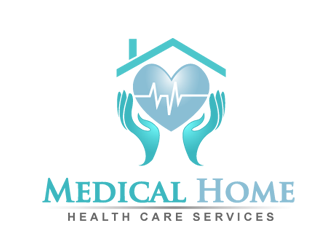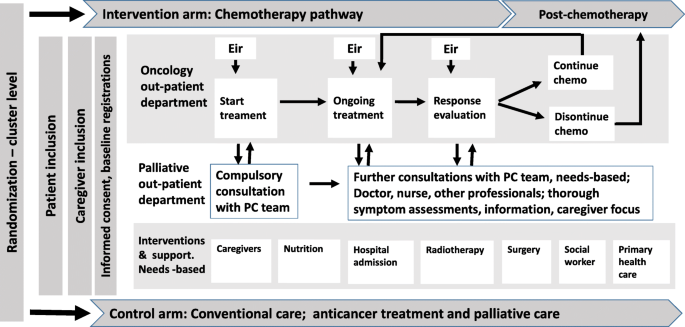
Home health care is a government-funded service that benefits millions of Americans. This includes the elderly, children and people who have low income. It provides both short-term home nursing and rehab and long-term in-home aide services. State to state, coverage, service, qualifications and access are all different.
Does Medicare Cover Home Health Care?
Home health can be delivered by a wide range of professionals including licensed clinical workers, nurses, and certified home-health aides. Medicare will cover these services if a doctor or home health agency deems them necessary.
Do You Really Need Caregivers?
It can be challenging to find a caregiver for seniors who wish to remain at home as long possible. Finding the right caregiver is crucial. Several tactics can help you to do so.

How Can I Find a Caregivers in my Community?
You can search for a caregiver in your area using the tools provided by Medicare and the U.S. Administration on Aging.
Using these tools will allow you to compare providers and narrow your search by care type, services provided, and more. The search tools will also provide you with a list of agencies that accept Medicare or the U.S. Administration on aging and other programs that provide care.
How much is home health care?
Costs of home health services are heavily dependent on factors such as your age, level of care required, and type of service. However, the average cost of home health care is about $3,600 per month.
What are the benefits to Medicare and Medicaid?
Medicare and Medicaid provide the two main insurance options available to seniors who require in-home care. They both offer various benefits, and beneficiaries should check out both to see which one works best for them.

What are the eligibility requirements for Medicare and Medicaid
To be eligible for Medicare, a patient must have been in the hospital for at least three days. Original Medicare, also known as Part A, covers medically essential care provided to a patient while they are in a nursing home or hospital.
After a patient has left a hospital or nursing home, they are entitled to 100 days of home health care. If a patient needs home health care before their 100 days are up, they can still receive it through Original Medicare, or Part B.
Does Medicare Pay for Caregivers in Your Home?
A family member or friend can be a home health aide for Medicare patients. This is also called "self-directed or consumer directed care" and allows you to hire a home health aide that suits your needs.
FAQ
What are the basics of health insurance?
You should always keep track of the policy documents if you have insurance for health. If you have any questions, make sure to ask. Ask your provider to clarify it or call customer service.
When it comes to using your insurance, make sure you take advantage of the deductible. Your deductible refers to the amount you pay before your insurance starts covering the rest.
Who owns the healthcare system?
It depends on how you look at it. The government might own public hospitals. Private companies may run private hospitals. Or you can combine both.
What should I know about immunizations?
Immunization is the process by which a vaccine stimulates an immune response. The body creates antibodies (immunoglobulins), in response to the vaccine. These antibodies protect against infection.
What is a healthcare system?
Health systems encompass all aspects of care, from prevention to rehabilitation and everything in between. It includes hospitals. clinics. pharmacies. community services. public health, primary and long-term health care. home care. mental health and addictions. palliative, end-of life care. emergency medicine. research, education. financing. and regulation.
Complex adaptive systems are the hallmark of health systems. They are complex adaptive systems with emergent features that cannot always be predicted by looking at each component.
Health systems are complex and difficult to understand. This is where creativity comes in.
Creativity can help us solve problems that we don’t have the answers to. Our imaginations are used to invent new ideas and improve things.
Health systems need people who think creatively because they're constantly evolving.
People who think creatively can help change the way health systems operate for the better.
Statistics
- Healthcare Occupations PRINTER-FRIENDLY Employment in healthcare occupations is projected to grow 16 percent from 2020 to 2030, much faster than the average for all occupations, adding about 2.6 million new jobs. (bls.gov)
- Over the first twenty-five years of this transformation, government contributions to healthcare expenditures have dropped from 36% to 15%, with the burden of managing this decrease falling largely on patients. (en.wikipedia.org)
- The healthcare sector is one of the largest and most complex in the U.S. economy, accounting for 18% of gross domestic product (GDP) in 2020.1 (investopedia.com)
- Price Increases, Aging Push Sector To 20 Percent Of Economy". (en.wikipedia.org)
- For instance, Chinese hospital charges tend toward 50% for drugs, another major percentage for equipment, and a small percentage for healthcare professional fees. (en.wikipedia.org)
External Links
How To
What is the Healthcare Industry Value Chain
All activities that are involved in providing healthcare services for patients make up the healthcare industry value chain. This includes the operations of hospitals and clinics as a whole, and the supply chain that connects them to other providers. The end result is a continuum, which begins with diagnosis and ends at discharge.
The four key components of the value chain are:
-
Business processes - These are the tasks performed throughout the whole process of providing health care. One example is that a doctor might do an examination and prescribe medication. The prescription will then be sent to a pharmacy for dispensing. Each step must be done correctly and efficiently.
-
Supply Chains - All the organizations involved in making sure that the right supplies reach the right people at the right time. One hospital may have many suppliers. This includes pharmacies and lab testing facilities as well as imaging centers and janitorial staff.
-
Networked Organizations (NO) - In order to coordinate the various entities, communication must exist between all parts of the system. Hospitals typically have many departments, each with its own set of offices and phone numbers. Each department will have its own central point, where employees can get updates and ensure everyone is informed.
-
Information Technology Systems – IT is crucial in order to ensure that business processes run smoothly. It is essential to ensure that business processes run smoothly. Without IT, everything would be a mess. IT also provides a platform for integrating new technologies into the system. If doctors want to integrate electronic medical records in their workflow, they can use secure network connections.